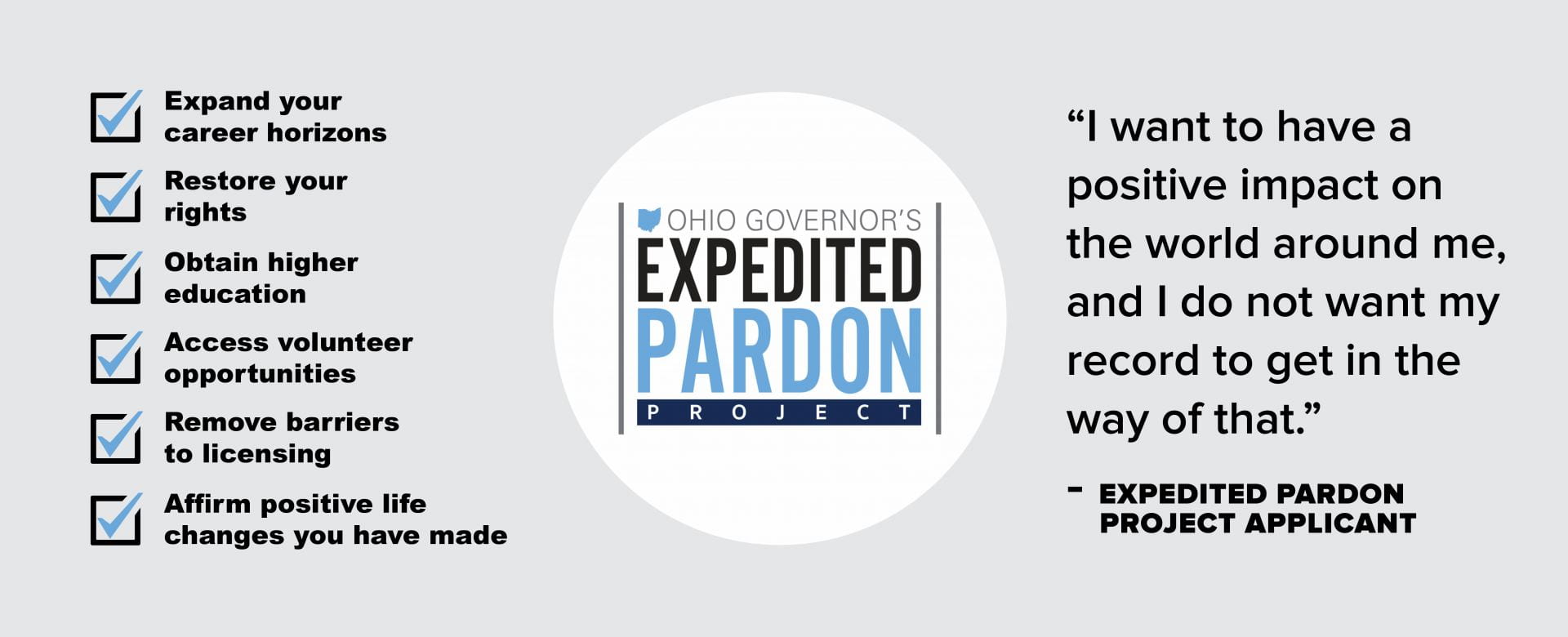
A Pardon Could Help
Those convicted of a criminal offense in Ohio often face a lifetime of roadblocks. But if you’ve transformed your life after a conviction, you may not have to face those barriers forever; a pardon could help! Many Ohioans have received a pardon with free support from our experts.
The Ohio Governor’s Expedited Pardon Project is aimed at enhancing and expediting the process by which people apply for a formal pardon from the Governor under Ohio’s laws. The project seeks to reduce challenges surrounding a clemency application in Ohio for people meeting certain criteria who can show that they have been rehabilitated and have contributed positively to their communities after completing their sentences.
You can explore the application process, eligibility, and more by watching an introductory video on the project.

Profile of a Pardon Applicant
As of February 2, 2026, the project has received over 1,600 applications from 84 Ohio counties and 33 states. While applicants have many reasons for pursuing a pardon, the most common are employment and educational opportunities, removal of stigma, restoration of rights, and ability to volunteer in their community. This group is demographically diverse. Approximately 48 percent of the applicants identify as white, 47 percent identify as Black/African American, and the remaining applicants identify as another race/ethnicity or multiple. Roughly two thirds of the applicants identified as male and about one third identified as female. A little over 50 percent of the applicants have an annual household income of less than $50,000, about 30 percent have a household income between $50,000 to $100,000, and the remainder have household incomes above $100,000.
To learn more about the project, explore our infographic report on the six-year anniversary of the project. An accessible version of the report is also available.

Eligibility
To be considered for the Ohio Governor’s Expedited Pardon Project, an applicant must meet the minimum eligibility requirements. Meeting the minimum requirements does not guarantee admission to the project. The Project Team has discretion to decline applications that do not align with the mission of the project. The two most common reasons for non-acceptance are: 1) it has been less than 10 years since the person completed their last sentence, and/or 2) they have a disqualifying offense on their record.
If you do not meet the minimum eligibility requirements to apply for an expedited pardon, you may still apply for a traditional pardon. For more information on other available remedies, including a traditional pardon, visit the Drug Enforcement and Policy Center’s Ohio Criminal Record Relief Options resource page.